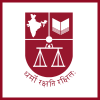Medical Negligence
Medical Negligence
Recently, there has been a rise in patient rights awareness in Indian culture. Currently, common law principles relating to negligence, tainted consent, and violation of confidentiality are taken into account during the adjudication process for medical professional liability, whether it be in a consumer forum or a regular civil or criminal court. When a patient seeks medical advice from him, the practitioner owes them certain obligations. Negligence is the result of a failure to perform this responsibility. The preservation of a patient’s rights must not, however, come at the expense of the professional’s autonomy and honesty. There is unquestionably a need to strike a careful equilibrium.
Grounds for Complaints
- There is breach of duty by the doctor because of which an injury is caused
- If the consent of a person/patient before performing acts like surgical operations and in some cases treatment as well, has not been obtained.
- Damage to organs due to negligence.
- Wrong treatment due to wrong diagnosis.
- Money receipt or prescription or discharge summary or test reports when not provided.
- When treatment is not chosen as accepted and established in medical norms /as per medical research/available medical literature.
- Theory of res ipsa loquitur [a thing speaks of itself] – in case any instrument left in the body, a wrong part removed, allopathic treatment given by a homeopathic doctor etc.
- Govt Hospital liable if contribution from the employee’s salary deducted OR Payment made by insurance company.
- Hospitals can also be negligent ‘it is a case of non- availability of oxygen cylinder either because the hospital failed to keep available a gas cylinder or because of the gas cylinder being found empty.
Code of Medical Ethics Regulation, 2002
This regulation states the code of etiquettes and morals to be followed by a registered medical practitioner.
Duties and Responsibilities of a Physician:
- He should maintain medical records.
- Every physician has to display their registration number.
- A physician is to prescribe the name of the drugs with their generic name.
- Every physician has to provide highest quality assurance in patient care.
- Every physician has an obligation to expose unethical conduct.
- A physician should announce his fees before rendering service and not after the operation or treatment is under way.
- The physician shall observe the laws of the country in regulating the practice of medicine and shall also not assist others to evade such laws.
- The physician has to maintain secrecy regarding the patient’s health. No revelation is to be made until or unless it is made to protect a healthy person from a communicable disease.
- The physician should neither exaggerate nor minimize the gravity of a patient’s condition.
- The physician has to avoid unnecessary consultations
Misconduct by physician
1. Adultery or Improper Conduct:
The misuse of power and position by a physician by committing adultery or improper conduct with a patient would make the physician liable for disciplinary action as provided under the Indian Medical Council Act, 1956 or the concerned State Medical Council Act.
2. Sex Determination Tests:
Unless there are other absolute indications for termination of pregnancy as specified in the Medical Termination of Pregnancy Act, 1971 is assessed, no termination of pregnancy is to be made. No sex determination tests are to be taken with an intention to terminate female fetus, an an act done by a physician would result in criminal proceedings.
3. Signing Professional Certificates, Reports and Other Documents:
Due care is to be taken while prescribing drugs to a patient. No physician can allow an unqualified person to perform abortion or surgery. If a procedure involves them becoming sterile, a consent has to be obtained from the man, woman or guardian in case of minors. If the patient is married and both the consent of husband and wife is to be taken.
4. Research:
Clinical drug trials and other research involving patients are to be done in accordance with the ICMR guidelines. Violation of the guidelines constitutes misconducts.
5. Absenteeism:
If a medical practitioner posted in rural area or an institute is found absent on two occasions while an inspection is done amounts to misconduct.
6. Leaking of photographs:
No photographs or case reports are to be published by the medical practitioner without their permission/ consent.
7. Liability:
If a nursing home is run by a physician the ultimate responsibility lies in the hand of the physician.
8. Can’t Claim to be a specialist:
A Physician shall not claim to be specialist unless he has a special qualification in that branch.
When Complaints Would Not Be Accepeted
There are various situations which might cause the complaint to be rejected. These include situations where the consumer is unable to file an appeal against an order within a period of three months, where the complaint is based on a frivolous cause of action, where the complaint falls outside the jurisdiction of the authority approached, and when the complaint has been filed under wrong sections of the act, and other such situations. This requires careful reading of all acts and regulations.
Complaint Redressal System
1. Reach out to the Medical Superintendent (M.S) of the concerned Hospital with a copy of the complaint to the Chief Medical Officer (CMO)/ Civil Surgeon of your area.
2. On dissatisfaction of response from above, write a complaint to the State Medical Council(SMC). Read More
3. The next step is to reach the Medical Council of India with no satisfactory response from the SMC. Read More
4. An alternative remedy is to submit your complaint through National Health Portal’s Grievance redressal. Read More
5. Approaching any other appropriate judicial or quasi-judicial body:
The complainant is free to take the service provider to a court or any other suitable venue (judicial or quasi-judicial). The proceedings in consumer commissions are not mired by the niceties of procedure, allowing the complainant to file a complaint for himself. As a consumer, the aggrieved party can take the service provider to the appropriate consumer commission, based on the pecuniary and territorial jurisdiction. The jurisdictions of the various consumer commissions are as follows-
a) District Commission: The aggrieved consumer can reach out to the District Commission under section 34 of the CPA, 2019, which provides that the district commission shall entertain matters where the value of the goods or services paid as consideration does not exceed more than one crore rupees.
b) State Commission: In cases where the value of the goods or services paid as consideration is more than one crore, but less than 10 crores, the consumer can approach the State Commission. Moreover, in cases of unfair contracts, the State Commission has original jurisdiction and the consumer can be directly approached. An appeal against the order of the District Commission can also be made under section 47 of the CPA, 2019.
c) National Commission: The National Commission can entertain matters where the value of goods or services paid as consideration exceeds 10 crores. Section 58 also provides that complaints against unfair contracts can be entertained by NCDRC when the amount of value paid exceeds 10 crores. The NCDRC also has appellate jurisdiction against the orders of any State Commission and Central Authority.
Moreover, it must also be kept in mind that section 100 of the CPA, 2019 provides that the remedy under CPA is in addition and not in derogation of other available remedies.
6. Central Consumer Protection Authority
If the commission finds violations of rights of consumers or in notice of trade practices which is unfair it can inquire or cause an inquiry, either on receipt of complaint or suo moto or as directed by Central Government. If the commission finds, after preliminary inquiry, of an existence of a prima facie case of consumer rights violation or it is in notice of any unfair trade practice or any wrong or inaccurate advertisement which is prejudicial to public interest or to the interests of the consumers,it can order an investigation by the District Collector or by Director General.
The consumer can complain to the District Collector of the respective district for investigation and subsequent proceedings by the CCPA. He/she/they can also submit a complaint via email, at com-ccpa@nic.in.
Regulatory Body
- Central Drug Standard Control Organization- consumer education on safety and drugs
- Indian Council of Medical Research
- Ministry of Health and Family Welfare
Legislations
1. National Health Policy, 2017
2. The Clinical Establishments (Registration and Regulation) Act, 2010
3. The Bureau of Indian Standards Act, 2016- it sets out standards for goods and services, which includes healthcare services.
4. Indian Medical Council Act, 1956
5. The Indian Medical Council (Professional Conduct, Etiquette and Ethics) Regulations, 2002
Landmark Judgements
1. Indian Medical Association v. V.P. Shantha & Ors
Medical treatment was to be considered to be a service and accordingly, medical practitioners could be liable for deficiency of service.
2. Kusum Sharma v. Batra Hospital and Medical Research Centre
Duty of care which is required of a doctor is one involving a reasonable degree of skill and knowledge as laid down in the Bolam case and adopted by Indian Courts.
3. Achutrao Haribhau Khodwa v. State of Maharashtra & Ors
A doctor is vicariously liable for the negligence committed by members of his team which was assisting in the treatment.
4. Smt. Savita Garg v. Director, National Heart Institute
The onus shifts on the hospital to explain the exact line of treatment rendered and as to why a particular condition had occurred.
5. Dr. Laxman Balakrishna Joshi v. Dr. Trimbak Babu Godbole
The duties of a medical practitioner were defined; i) he owes a duty of care in deciding whether to undertake the case, ii) he owes a duty of care in deciding what treatment to give and, iii) he owes a duty of care in the administration of that treatment.
6. Tanveer Jahan v. All India Institute of Medical Science and Ors.
There has to be “a direct nexus” between sufferings of a patient and the medical aid that she has received, to sue the doctor.
7. Bijoy Sinha Roy (d) By Lr. v. Biswanath Das & Ors
The operation should not have been performed at a nursing home which did not have the ICU when it could be reasonably foreseen that without ICU there was post-operative risk to the life of the patient. The Supreme Court through its order awarded compensation to the victim.
8. Sushmita Roychowdhury and Ors., v. B.M. Birla Heart Research Centre and Ors
NCDRC held that there was deficiency on the part of the hospital in maintaining proper record of the patient as there is no satisfactory explanation for the missing treatment prescriptions and the goof up in the master register of operation theatre.
9. Srimannarayana v. Dasari Santakumari and another
What may be negligence in civil law may not necessarily be negligence in criminal law. For negligence to amount to an offence, the element of mens rea must be shown to exist. For an act to amount to criminal negligence, the degree of negligence should be much higher i.e. gross or of a very high degree. Negligence which is neither gross nor of a higher degree may provide a ground for action in civil law but cannot form the basis for prosecution.
10. Handa Nursing Home And Ors. v. Ram Kal
The treatment administered in this case was as per standard procedure. The expert committee indicated that the tests would have been advisable prior to the operative intervention but nowhere mentioned that without these tests Petitioner committed deficiency in giving treatment.
Sample Complaints
Important Links and Resources
1. INGRAM
2. The NHM division of the Ministry of Health and Family Welfare with technical support from NHSRC has come out with guidelines which can help the states in establishing and effectively operationalizing a client friendly, dedicated and transparent system for redressal of grievances- Know more
3. List of State Health departments

